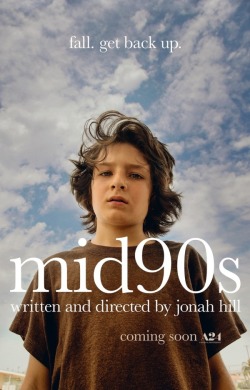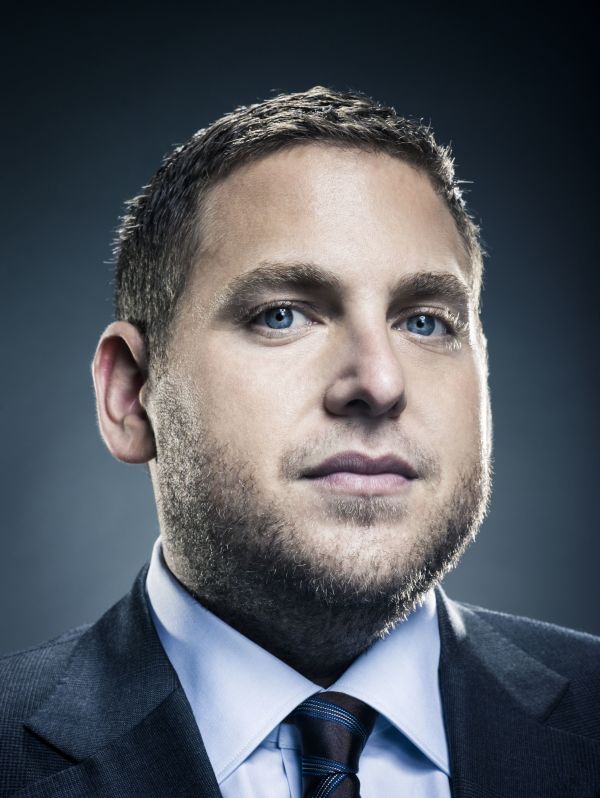![]() BY DAN TABOR FILM CRITIC Mid90s, Jonah Hill’s directorial debut, is an impressive feat for a first-time filmmaker. This coming of age drama set in the skateboarding subculture of the 90s is heavy on the nostalgia as you would probably expect, but also has something genuinely important to say about youth. We experience the film through the eyes of Stevie (Sunny Suljic) the son of a single mother who is taken in by a group of skaters much older than him who teach him some very important life lessons and how to be a man. It’s not the film I would expect from Hill who was surprisingly introspective, humble and thoughtful when I got to chat with for a few minutes about how his instantly iconic film came into existence.
BY DAN TABOR FILM CRITIC Mid90s, Jonah Hill’s directorial debut, is an impressive feat for a first-time filmmaker. This coming of age drama set in the skateboarding subculture of the 90s is heavy on the nostalgia as you would probably expect, but also has something genuinely important to say about youth. We experience the film through the eyes of Stevie (Sunny Suljic) the son of a single mother who is taken in by a group of skaters much older than him who teach him some very important life lessons and how to be a man. It’s not the film I would expect from Hill who was surprisingly introspective, humble and thoughtful when I got to chat with for a few minutes about how his instantly iconic film came into existence.
PHAWKER: So, how did this film come together?
JONAH HILL: I don’t know, I’ve just been in the best film school you could ever imagine for the past 15 years as an actor. I’ve gotten to learn from so many amazing directors, who were my professors in this film school I’ve been in. You know when it came time to make my own film, I just wanted it to be something I really deeply cared about and for the past four years whenever I was like sad or lonely, or angry I would just go into my room and write. You kind of think no one is going to show up,  honestly, if you just work on it hard enough and believe in it people start to show up.
honestly, if you just work on it hard enough and believe in it people start to show up.
PHAWKER: For most of the cast this was their first acting role, did you rehearse at all to get them ready to inhabit the characters?
JONAH HILL: Sunny came in first and right way I just knew it was him and he understood it so deeply. We did the scene with him and Catherine in the car where he’s yelling at her and I was just like “holy shit, this guy is an amazing actor.” Because you felt it. It wasn’t like a kid actor, this energy makes Sonny like a force of nature. Then next Ryder came in and again like Sunny was immediate, just like Sunny we knew Ryder was it. Then we had Owen who was so funny when he came in and he told me this story about using his girlfriend’s fake ID to get in somewhere. So I have to send these tapes to Scott Rudin and Eli Bush at A24 to get them approved, because obviously I am not a casting agent and normal in a film like this they would make you cast child actors, or kids like Stranger Things or something. No disrespect, but these are real kids. They are real skateboarders. That was really important to me.
So, Owen was funny and I sent Scott the tape and he asked me if I was going to have him audition. Because I had just forgot to have him read the lines, because his story was so great I was like ‘that’s a movie star,’ you know that I would want to see. Before him Na-kel Smith just came in why plays Ray. He came in and did the scene with Sonny, where they are talking outside the skate shop and everybody’s jaw was just on the floor. So you kind of knew they had it, but they didn’t have that established career and everyone just worked so hard.
That was the journey of finding these kids, but it really was an insane amount of work on their parts. Watching these kids become artists, and feel empowered to work their asses off. When I saw Moneyball for the first time it was in Toronto when it premiered, so I wanted to give them that experience. So none of them had seen the film till the Toronto Film Fest and it was their first time seeing this film and it was a highly emotional night, I don’t want to speak for them but for me it seemed like it was amazing to watch them watch the fruits of their hard work.
PHAWKER: I’m a big fan of Trent Reznor and Nine Inch Nails, how did he become involved?
JONAH HILL: And Atticus Ross. Well it’s double layered, they are my favorite modern film composers and also the fact that Trent was in Nine Inch Nails was sort of a nod that he was a 90s icon, so it works on both levels. But I wouldn’t have hired just a 90s icon. Him and Atticus happen to be my favorite film composers and we didn’t have a lot of money as an independent film, and I didn’t think we be able to get them. Eli Bush and Scott Rudin had produced the Social Network, so they had worked with Trent and Atticus, and it was something I had mentioned in passing to Eli as like a dream. Almost like one of those things you say almost passive aggressively, “Oh that’d be cool if Trent and Atticus did the score or whatever.” But you never think it’s going to happen.
But we sent them the movie and they said yes right away and I can’t believe they scored my first film you know and its really special and I love the score it really adds to the emotion of the film.
PHAWKER: There’s a story going around that you talked about directing with Scorsese, for four hours. What’s the best piece of advice he gave you for the film?
JONAH HILL: Working with him and Leo on Wolf of Wall Street before this was like the defining moment of my life, as far as something like an education; still the best education I’ve ever had. It was watching my favorite filmmaker work for seven months, and my hero. I would never bother him and I sent a lot of people I know the screenplay to get to get notes and I would never bother him or anything. But the weekend before we started prep, we have the same manager and I said should I text him and ask him? He said of course. I text him, and he said I could over and I went to his house and I thought I would get like 15 minutes, but he loves film so much, he was so interested in the story, we ended up talking for four hours, which was amazing.
One of the things he talked to me about, is I talked to him about Christopher Blauvelt our wonderful DP  had talked about staying wide and not doing a tremendous amount of coverage and only when necessary. He was very adamant that the opening of the film not cut. You know that fight with the two brothers, at the beginning. He was really like just let it be real, don’t try to cut in like punches and stuff like that, it will be far more unsettling if you stay wide. I really appreciated that and used that ethic throughout the film to stay wide and people just exist in the frame and let that violence exist in the frame. Elephant was also a big influence on the film as well and that was a film that did that very well.
had talked about staying wide and not doing a tremendous amount of coverage and only when necessary. He was very adamant that the opening of the film not cut. You know that fight with the two brothers, at the beginning. He was really like just let it be real, don’t try to cut in like punches and stuff like that, it will be far more unsettling if you stay wide. I really appreciated that and used that ethic throughout the film to stay wide and people just exist in the frame and let that violence exist in the frame. Elephant was also a big influence on the film as well and that was a film that did that very well.
PHAWKER: I read that originally you had two timelines in the script and older Stevie, sort of looking back on his youth, what was that older timeline about?
JONAH HILL: Four years ago I was writing a play with Spike Jonze and he is an amazing friend and mentor. He and I do this thing when we are writing a film, we were taking breaks from writing our play and we would tell each other the story of the film from beginning to end. So if you do this every day you end up getting lots of new ideas, you can contribute to each other’s new ideas and also you just saying it makes you understand the story, unbelievable deeply, having to repeat it over and over again. A lot of time Scorsese would be saying things to me that were super literal about the story and I kind of thought he was fucking with me, because they were so obvious. “So, you walk in and put the thing down and your character is thinking this”, like yeah, I know. You know like you’re the biggest genius of all time and I realized he would just simply repeat the story and it was so genius because you have those things in life, you have those things you know you should do, but they are so simple you don’t do them. Just repeating the story of your film over and over again helps so much.
Anyway, so Spike and I were talking about the story of this film, and it was about something completely different and I kept flashing back to when this character was skateboarding with his friends when he was 12. Spike said “you know you light up like a Christmas tree when you talk about him when he is younger skating and you don’t seem as interested in the A story. So why don’t you just make that the story of the film.” I was like good call.

